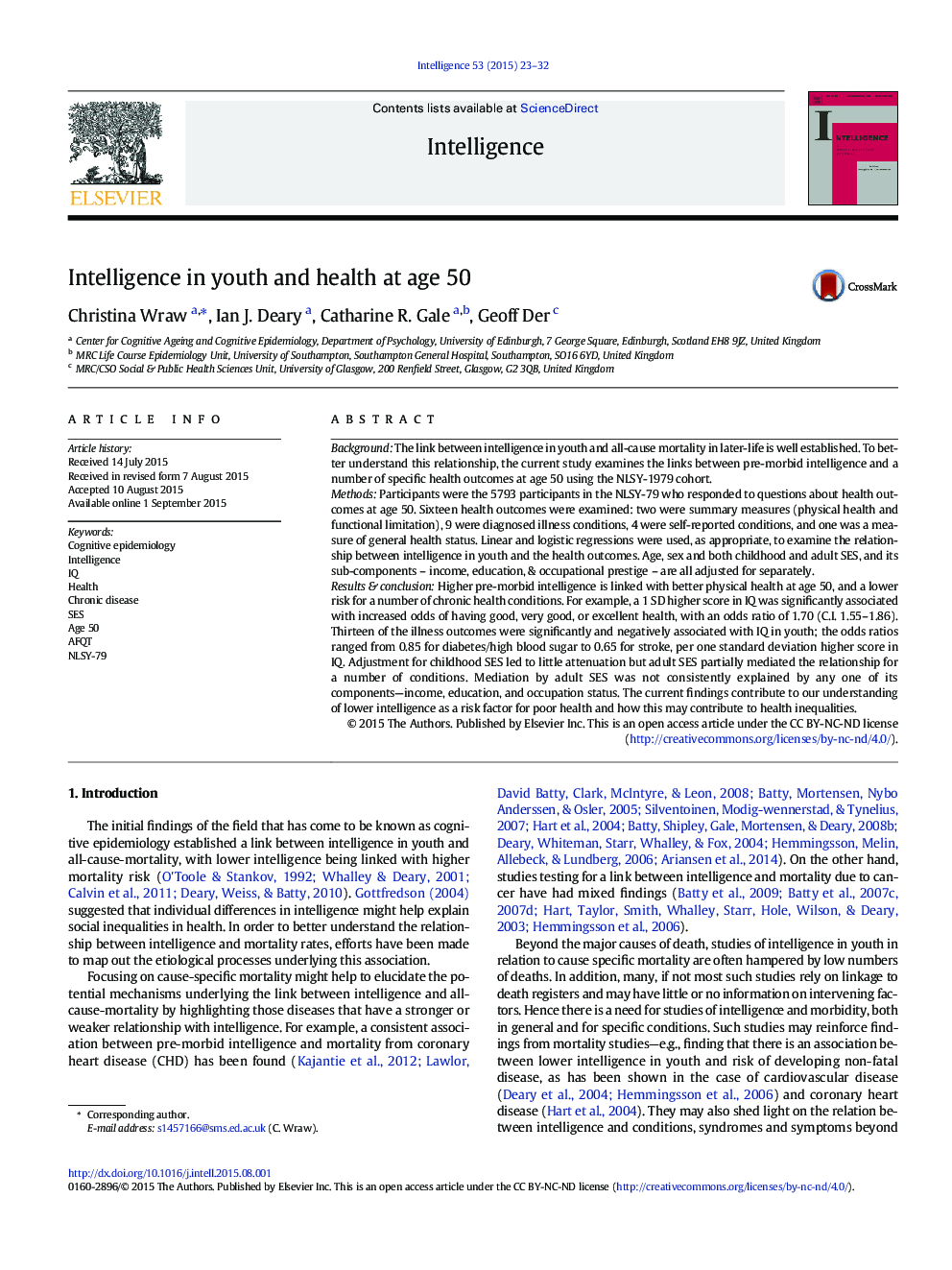| Article ID | Journal | Published Year | Pages | File Type |
|---|---|---|---|---|
| 7293553 | Intelligence | 2015 | 10 Pages |
Abstract
Higher pre-morbid intelligence is linked with better physical health at age 50, and a lower risk for a number of chronic health conditions. For example, a 1 SD higher score in IQ was significantly associated with increased odds of having good, very good, or excellent health, with an odds ratio of 1.70 (C.I. 1.55-1.86). Thirteen of the illness outcomes were significantly and negatively associated with IQ in youth; the odds ratios ranged from 0.85 for diabetes/high blood sugar to 0.65 for stroke, per one standard deviation higher score in IQ. Adjustment for childhood SES led to little attenuation but adult SES partially mediated the relationship for a number of conditions. Mediation by adult SES was not consistently explained by any one of its components-income, education, and occupation status. The current findings contribute to our understanding of lower intelligence as a risk factor for poor health and how this may contribute to health inequalities.
Related Topics
Social Sciences and Humanities
Psychology
Experimental and Cognitive Psychology
Authors
Christina Wraw, Ian J. Deary, Catharine R. Gale, Geoff Der,
